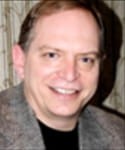60 Minutes: Science of Sexual Orientation
-
Dr. Warren Throckmorton Dr. Warren Throckmorton's Weblog
- Published Mar 13, 2006
Just some of my reactions to the 60 Minutes segment on sexual orientation. This is addressed to an assistant to the segment's producer who invited me to respond.
Robin:
In the segment, this narration was near the end:
"Then there's the question of how something in the womb could affect one twin but not the other. There are many more questions at this point than answers, but the scientists 60 Minutes spoke to are increasingly convinced that genes, hormones, or both — that something is happening to determine sexual orientation before birth."
There are many problems with the segment but this narration reveals the crux of the matter. You acknowledge there are many more questions than answers, but you still reference your experts as having the conclusion that sexual orientation is determined before birth. You documented numerous exceptions to the theories you presented and then you make a conclusion that is unwarranted by that information. Given those exceptions, you could just as easily have concluded that the certainty that many people used to feel about sexual orientation being inborn might be misguided. In fact, we do not know why people experience the sexual attractions they do.
In fact, in this body of research, there is a relationship between gender non-conformity and later homosexuality but there are numerous exceptions (some effeminate men are straight and some masculine men are gay). However, while gender non-conformity is associated with genetic similarity, sexual orientation is not strongly correlated with being genetically alike. Bailey's own work shows this. There is a role for the environment to play in the pathway from gender nonconformity to sexual feelings. Your broadcast did not address how gender nonconformity might lead to homosexuality. It was just assumed that gender nonconformity was a precursor to homosexuality. In the process, you reinforced all of the stereotypes about gay men being effeminate and helped to reinforce the social environment that assumes effeminate boys will become gay. You could just as easily presented effeminate straight males and asked why they are straight if being gender nonconforming causes homosexuality.
The problem here is you assumed correlation means cause. A correlation between gender nonconformity and homosexuality does not warrant a conclusion that gender nonconformity directly causes homosexuality. A plausible explanation, at least for some gay men, is that the environment mediates in some way which effeminate men will become gay and which ones will not. In fact, a theory exists that suggests just this kind of mediation but it was not mentioned. Daryl Bem at Cornell has developed such a theory and it was irresponsible for you to discuss gender nonconformity without presenting Bem's work. In my opinion, you incorrectly led your viewers to believe that no credible science supports social environmental factors which might mediate the development of sexual attractions.
Even the hormonal theory does not specify how gayness might arise from gender nonconformity. This theory only relates to how people might express gender nonconformity. A feminized brain might lead to gender nonconforming behavior but this does not specify how such people might develop attractions to the same sex.
In this context, you presented the older brother theory and allowed Dr. Breedlove to suggest an intrauterine theory for this phenomenon. However, you did not state that even the developers of that theory predict that between 15 and 29% of gay men might owe their homosexuality to the older brother effect. While interesting and important, this theory (which is not at all proven) fails to account for a large majority of people. Instead you provided no context and left the impression that hormones may account for most homosexuality. You also ignored 2002 research by Yale sociologists Bearman and Bruckner that demonstrated another familial effect: opposite sex fraternal twins. They found that boys having an opposite sex fraternal twin are twice as likely as other boys to experience same sex attraction. In contrast to your report, they found that the presence of an older brother diminished reports of same sex attractions.
I think the only fair thing for you to do is to revisit the issue and provide some kind of balance. While there are numerous ramifications of presenting incomplete and therefore, misleading information, the primary matter I am thinking about this morning is the impact of stereotyping on young sensitive, effeminate kids. With your program, you have added to this stereotyping that labels such boys as gay from an early age and results in teasing, pigeon-holing and self-doubt.
I said at the top this is a beginning and I could go on (especially about the lack of discernment of putting on air the young fraternal twin pair) but I think I will stop now. Sexual orientation research is indeed a difficult topic to present in a 15 minute segment. However, I believe future investigations could be much more accurate and balanced if you bring in a wider range of researchers, theorists and thinkers in the field. Toward that end, I would be glad to provide documentation and further nuance if desired.
Appreciate the opportunity to present these reactions,
Warren Throckmorton, PhD
Associate Professor, Psychology
Fellow, Psychology and Public Policy
Grove City College



















